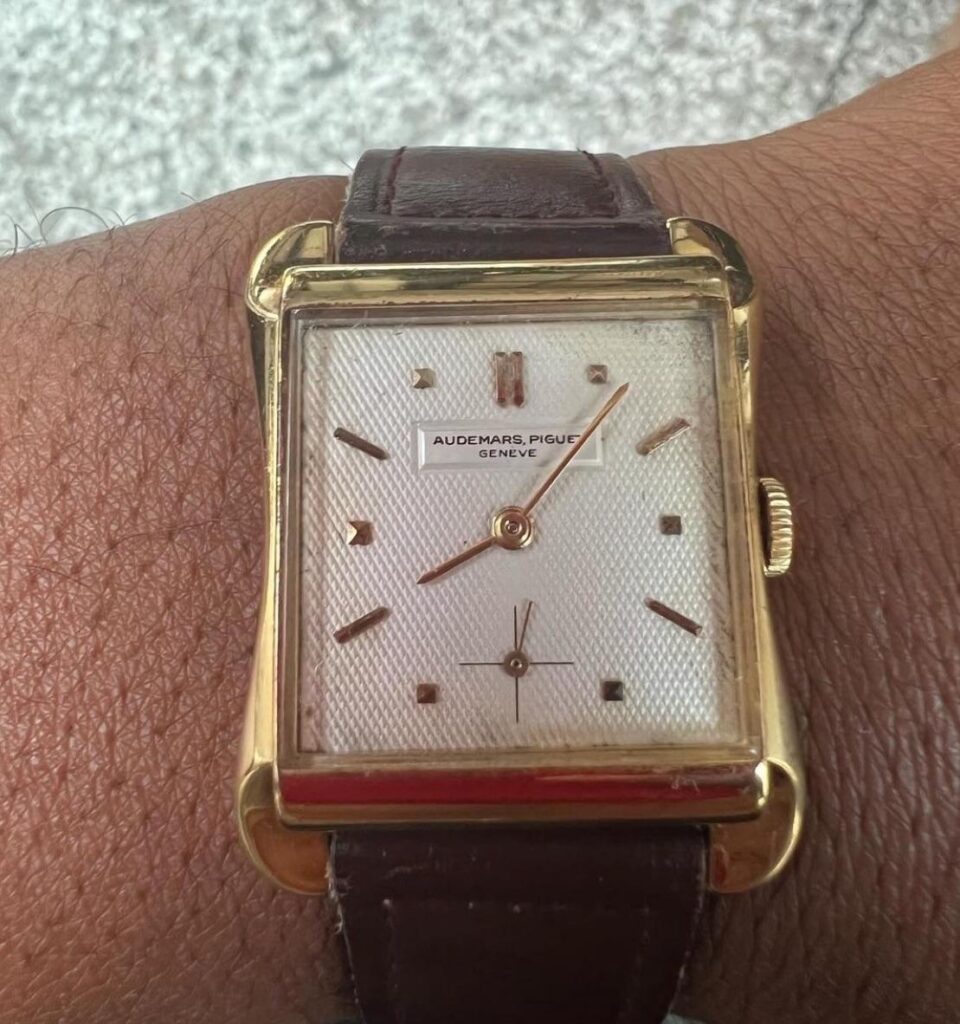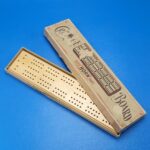In a world where culinary trends come and go with the season, the “Vintage Better Homes and Gardens Cookbook” stands as a lasting testament to time-honored traditions and cherished family recipes. First published in the mid-20th century, this beloved cookbook has become more than just a compilation of recipes; it represents a cultural snapshot of an era when home cooking was a unifying force, bringing friends and family together around the dining table. Its pages are imbued with the nostalgia of classic dishes, from comforting casseroles to delectable desserts, inviting home cooks both novice and seasoned to explore the symphony of flavors that have delighted generations. In this article, we delve into the allure of this vintage tome, examining its historical significance, the evolution of food culture, and the enduring relevance of its recipes in today’s culinary landscape. Join us on a journey through food history, where each recipe tells a story and every forkful is steeped in tradition.
Exploring Culinary History Through the Vintage Better Homes and Gardens Cookbook
Delving into the pages of the Vintage Better Homes and Gardens Cookbook is like stepping into a time capsule of culinary traditions. Each recipe not only reflects the tastes of its era but also provides a glimpse into the social context and cultural norms that shaped American kitchens in the mid-20th century. From sumptuous holiday feasts to everyday meals, the cookbook serves as a delightful chronicle of how food has evolved over generations. It’s fascinating to note the ingredients and techniques that were once considered staples, shining a light on shifting culinary trends and consumer preferences. Highlights include:
- Classic Dishes: Recipes for iconic meals that have stood the test of time.
- Regional Favorites: Insights into local dishes that reflect America’s diverse culinary landscape.
- Historic Ingredients: A look at what was popular to cook with before the age of globalization.
Moreover, the illustrations and design of the cookbook itself contribute to its historical significance, capturing the essence of the era it represents. The vibrant colors and playful typography are reminiscent of mid-century optimism, inviting the cook to not only create meals but also to engage in a form of art. As you flip through the pages, you might encounter a table detailing popular trends from that time:Vintage Texas TechDad Caps Vintage
| Trend | Description |
|---|---|
| Convenience Foods | Rise of canned goods and frozen items revolutionizing meal prep. |
| Potluck Dinners | Community gatherings centered around shared meals became popular. |
| Home Canning | The practice of preserving seasonal produce surged among homemakers. |
Timeless Recipes That Have Stood the Test of Time
Within the pages of the Vintage Better Homes and Gardens Cookbook, you’ll discover an array of cherished recipes that have transcended generations, becoming staples in kitchens across the globe. Not only do these culinary treasures offer comfort and nostalgia, but they also highlight the simplicity and freshness that characterized cooking in a bygone era. Here are a few standout recipes that continue to delight home cooks:
- Classic Chicken Noodle Soup: A soothing bowl of homemade broth, tender chicken, and perfectly cooked noodles, perfect for any occasion.
- Baked Macaroni and Cheese: This creamy, cheesy delight is the ultimate comfort food, making it a beloved choice for family gatherings.
- Peach Cobbler: Simple and sweet, this recipe showcases seasonal fruit at its best, topped with buttery biscuits.
The allure of these recipes lies in their straightforwardness and deliciousness. The timeless methods and wholesome ingredients remind us that good food doesn’t need to be complicated. Below is a concise overview of classic ingredients that form the backbone of many vintage recipes:
| Ingredient | Purpose |
|---|---|
| Flour | Essential for baking and thickening sauces. |
| Sugar | Sweetens and enhances flavors in both savory and sweet dishes. |
| Butter | Adds richness and depth to both baked goods and savory dishes. |
| Eggs | Bind ingredients together while adding moisture and flavor. |
Innovative Cooking Techniques from a Bygone Era
Exploring the culinary techniques of yesteryears unveils a treasure trove of innovative methods that have shaped modern cooking. From slow-cooking in Dutch ovens to the art of pickling, these timeless practices spark creativity and infuse flavor into dishes. Key techniques featured in vintage cookbooks include:
- Preservation through Canning: A method that not only extends the shelf life of seasonal produce but also intensifies flavors.
- Smoking and Curing: Techniques that enhance the depth of meats and fish, offering unique taste profiles hard to replicate in our fast-paced world.
- Pot Roasting: A hands-off approach that results in tender, succulent dishes, deeply infused with flavor from herbs and spices.
Many of these methods also emphasize the importance of seasonal ingredients and local sourcing, principles that resonate today amidst the farm-to-table movement. With the resurgence of these techniques, we can recreate some of the classic dishes that have stood the test of time. Here’s a brief overview of some pivotal cooking methods:
| Technique | Description |
|---|---|
| Dehydrating | Removing moisture from fruits and vegetables to create long-lasting snacks. |
| Confit | Slow-cooking meats in their own fat for rich flavor and tender texture. |
| Fermentation | A transformative process that creates complex flavors in foods like sauerkraut and kimchi. |
Essential Kitchen Tools Inspired by the Vintage Cookbook
Knowing which tools enhance your culinary experience can make all the difference, especially when echoing the timeless charm of vintage recipes. From baking to preserving, each essential piece has a story to tell, reminiscent of simpler times when each meal was crafted with care and attention. Some must-have tools that can transform your kitchen include:
- Cast Iron Skillet: Perfect for everything from frying to baking, this versatile tool brings out rich flavors.
- Wooden Spoon: A classic that never goes out of style—ideal for stirring soups, sauces, and batters.
- Measuring Cups and Spoons: Accurate measurements are key; vintage-inspired sets add a nostalgic touch.
- Whisk: Essential for emulsifying dressings or whipping cream, a rugged whisk can withstand any task.
- Vintage Can Opener: A charming addition that works efficiently while providing a conversation starter.
These tools are not just functional; they encapsulate the essence of the cooking experience, harkening back to an era when food preparation was considered a cherished art. Complementing these essentials are some delightful gadgets that have stood the test of time:
| Tool | Purpose |
|---|---|
| Pastry Cutter | Easily blends butter into flour for flaky pastries. |
| Rolling Pin | Perfect for rolling out dough for pies and cookies. |
| Colander | Drain pasta or rinse veggies effortlessly. |
| Food Mill | Makes light work of pureeing fruits and vegetables. |
Preserving Family Traditions with Classic Dishes
Gathering around the dinner table often brings back memories of family gatherings filled with laughter, stories, and the timeless aroma of favorite recipes simmering on the stove. A treasure trove of inspiration can be found in vintage cookbooks like the Better Homes and Gardens Cookbook, which serves as a bridge connecting generations through classic dishes. These cherished recipes not only nourish the body but also revive the culinary traditions that defined our families, offering a material link to the past. With every meal prepared from these beloved pages, families can celebrate their heritage, passing down both recipes and stories from one generation to the next.
Consider cooking nights centered around specific themes that reflect your roots. Here are some delightful classic recipes that can spark nostalgia and inspire togetherness:
- Beef Stroganoff – A creamy and hearty dish that warms the soul.
- Green Bean Casserole – A staple side that brightens any table setting.
- Chocolate Chip Cookies – Sweet treats that make perfect memories.
- Homemade Chicken Pot Pie - Comfortable cooking at its finest.
By setting up a dedicated cooking schedule or a family potluck to prepare these iconic dishes, you not only enjoy the process but also cultivate a rich tapestry of shared experiences that embrace flavor, love, and nostalgia. These moments spent in the kitchen remind us that food is more than sustenance—it’s a means of preserving family traditions and creating new memories that will echo through time.
Tips for Curating Your Own Vintage Cookbook Collection
Building a vintage cookbook collection is like embarking on a culinary treasure hunt. Start by exploring second-hand bookstores, flea markets, and estate sales where you might stumble upon hidden gems. When selecting your cookbooks, consider diversity in time periods and cuisines. Look for books that represent different eras and cultural influences, as each one tells a story about the culinary trends of its time. A vintage cookbook from the 1950s may highlight classic American dishes, while one from the 1970s might introduce international flavors that were just becoming popular. Don’t shy away from well-loved books with notes in the margins; these personal touches can enrich your collection with stories of meals shared and recipes tried.
Another important factor is the condition of the cookbooks. When evaluating potential purchases, take into account both the physical condition and the content. Prioritize books with detailed illustrations, enticing photographs, and comprehensive indexes. Create a categorized inventory of your collection to track your finds and note recipes you wish to try, perhaps using a simple table like the example below:
| Title | Author | Year | Notes |
|---|---|---|---|
| Better Homes and Gardens Cookbook | Better Homes and Gardens | 1953 | Classic American recipes |
| The Joy of Cooking | Irma S. Rombauer | 1931 | Fundamental techniques |
| Mastering the Art of French Cooking | Julia Child | 1961 | Authentic French cuisine |
Q&A
Q&A: Exploring the Vintage Better Homes and Gardens Cookbook
Q: What is the Vintage Better Homes and Gardens Cookbook?
A: The Vintage Better Homes and Gardens Cookbook is a classic American cookbook first published in 1930. It has become an iconic staple in many kitchens, cherished for its timeless recipes, practical cooking tips, and beautiful illustrations. This compilation reflects the home cooking of its time while remaining relevant for modern culinary enthusiasts.
Q: What types of recipes can readers expect to find in this cookbook?
A: Readers will discover a wide array of recipes ranging from traditional American comfort foods to classic desserts. Expect everything from hearty casseroles and savory meat dishes to delightful pastries and cakes. The cookbook also includes sections on canning, preserving, and entertaining, offering a comprehensive guide to home cooking.
Q: How does the Vintage Better Homes and Gardens Cookbook differ from modern cookbooks?
A: One key difference lies in the simplicity and straightforwardness of the recipes. Many modern cookbooks focus on gourmet or trendy dishes that require specialty ingredients, while the Vintage Better Homes and Gardens Cookbook emphasizes accessible, everyday cooking using pantry staples. Additionally, the emphasis on nurturing family and community reflects the values of its time.
Q: What is the significance of the cookbook in American culture?
A: The Vintage Better Homes and Gardens Cookbook has had a profound impact on American cooking culture since its inception. It has served as a guiding light for countless home cooks, promoting the importance of family meals and the joys of shared culinary experiences. Its recipes have been passed down through generations, making it a treasured heirloom in many households.
Q: Are there any notable recipes that stand out in this vintage collection?
A: Absolutely! Among the standout recipes, you will find the classic Creamed Spinach, iconic Macaroni and Cheese, and the ever-popular Chocolate Sheet Cake. Each recipe not only delights the palate but is also accompanied by helpful tips that enhance cooking skills, making it a beloved choice for both novice cooks and seasoned chefs.
Q: Is the cookbook still relevant today?
A: Yes! Despite its vintage origins, the Better Homes and Gardens Cookbook remains relevant in today’s kitchen. Many of the recipes can be easily adapted for contemporary tastes or dietary restrictions, while its foundational techniques continue to be invaluable for those looking to refine their culinary skills. Plus, its nostalgic charm makes it a delightful addition to any collection.
Q: How can someone start cooking from this vintage cookbook?
A: To begin, select a recipe that appeals to your palate—perhaps a beloved family classic or something new that piques your curiosity. Gather the ingredients, and don’t shy away from exploring techniques described in the book. Embrace the process, take notes on your experience, and enjoy the comfort of cooking through history. Sharing the finished dish will further connect you to the communal spirit that this vintage cookbook embodies.
Q: Where can readers find copies of the Vintage Better Homes and Gardens Cookbook?
A: Copies of the Vintage Better Homes and Gardens Cookbook can often be found at local bookstores, antique shops, and online marketplaces such as eBay or Amazon. Vintage editions may also be available at flea markets or second-hand stores, allowing you to pick up a piece of culinary history while building your personal library.
In traveling through the pages of the Vintage Better Homes and Gardens Cookbook, you’ll not only discover delightful recipes but also an enduring love for home cooking that bridges generations. Happy cooking!
To Wrap It Up
As we close the pages on the Vintage Better Homes and Gardens Cookbook, we find ourselves not just revisiting a collection of recipes, but also reawakening the spirit of a culinary era marked by simplicity, innovation, and community. This beloved tome, with its charming illustrations and time-honored advice, serves as a bridge connecting generations of home cooks, offering timeless lessons nestled within each carefully curated recipe.
Whether you’re looking to whip up a classic pot roast or experiment with a delightful new dessert, this cookbook stands as a testament to the power of home cooking to nourish both the body and the soul. Its pages are imbued with nostalgia, yet they continue to inspire creativity in today’s kitchens.
So, as you embark on your culinary adventures, let the wisdom of this vintage gem guide you. Embrace the art of cooking with love, as you create not just meals, but memories that will last long after the last bite is savored. Happy cooking!


